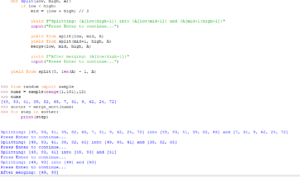Looking to optimize your database performance? Look no further than indexing!
Indexes are a data structure that helps search for data in a table for a given SELECT query without scanning every row. In MySQL, you can create indexes on specific columns to speed up search queries. However, not all columns in a table should be indexed, only those that are regularly filtered in SELECT queries.
Indexes can hinder the performance of data change queries but can significantly improve SELECT query performance. To optimize your queries, you need to be aware of what query operations MySQL uses indexes on. MySQL uses indexes when filtering rows, performing JOIN operations, using MIN/MAX functions, and sorting/grouping operations.
By creating indexes on columns that are used for these operations, you can significantly reduce the time it takes to execute queries. For example, if you have tens of thousands of clients in a table and need to retrieve data on clients from a specific city or state, you can create an index on the City and State columns to speed up the query.
To sum it up, indexes play a crucial role in database optimization by allowing the MySQL query optimizer to execute queries according to the best possible plan. Make sure to create indexes on the correct table columns, as unnecessary indexes can have a negative impact on data change statements like INSERT, UPDATE, and DELETE.






